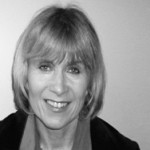Hilary is a Director of Changeworks and a thought leader in collaborative leadership, cultural change, coaching and applied ethics. Her work, broadly, assists people to thrive in the complexity and micropolitics of organisations. Flourishing cultures are those in which people feel agency and empowerment. Hilary’s work focuses on HOW people relate through conversation and everyday relationships and how this in turn, shapes a culture. The foundation of her work is identifying the values/principles-in-action at any given time, particularly the gap between espoused and values-in-action.
Hilary has considerable experience working with a large spectrum of people and is willing to challenge behaviour that discourages engagement and functionality. She works one to one and with couples and groups, as behaviour does not occur in a vacuum. There are always social, organisational and cultural as well as psychological issues at play and therefore essential to facilitate the growth of self-awareness as well as situational awareness.
Hilary focuses on mediating cognitive and psychological diversity using psychodynamic and narrative approaches, employing a “Mediating Conversations” approach (from her PhD research) which is grounded on shared values and principles that become the foundation for renewed relationships and vital cultures.
Her academic work has integrated the domains of psychology, applied ethics, and leadership development and her research focus on conversational practices (eg, a coaching approach, meeting behaviours and cultural habits) that enable agile, speak-up, values-based cultures.
She has worked with worked with large organisations in the Higher Education, NFP, Government and Finance sectors, and more recently in Start-ups and growing organisations delivering programs that improve leadership, culture, collaboration and applied ethics/wise decision making, as well as mediation and one-to-one coaching.
She has numerous publications in collaborative leadership, organisational coaching and ethical conversations and counselling and has co-authored/edited four books, as well as contributing to numerous others.
Clients Organisations include: Technology: Main Sequence, Horizons Ventures, Telstra, Leidos, SafetyCulture, Sympli, Presien, Samsara Eco, Higher Education: Sydney Uni., UTS, RMIT, UNSW, RACP, Health: NSW Health, RPA, Liverpool Hosp. U.Syd Health Sciences, NFP: Salvos, St Vincents, Heart Foundation, Smith Family, The Y, Uniting Care, Financial Sector: ANZ, ASX, RBA, IMF, BUPA, NAB, CBA, Macquarie Bank, Westpac, IAG, Sympli, ING, Suncorp, Construction: Laing O’Rourke, Leightons. Media: Fairfax, Fox, Manufacturing: Westfarmers, Fonterra. Transport and Govt: Qantas, Dept. Transport, Trainlink, Sydney Trains, CSIRO, ATO, Sydney Water, NSW Police, Urbis and SME’s.















